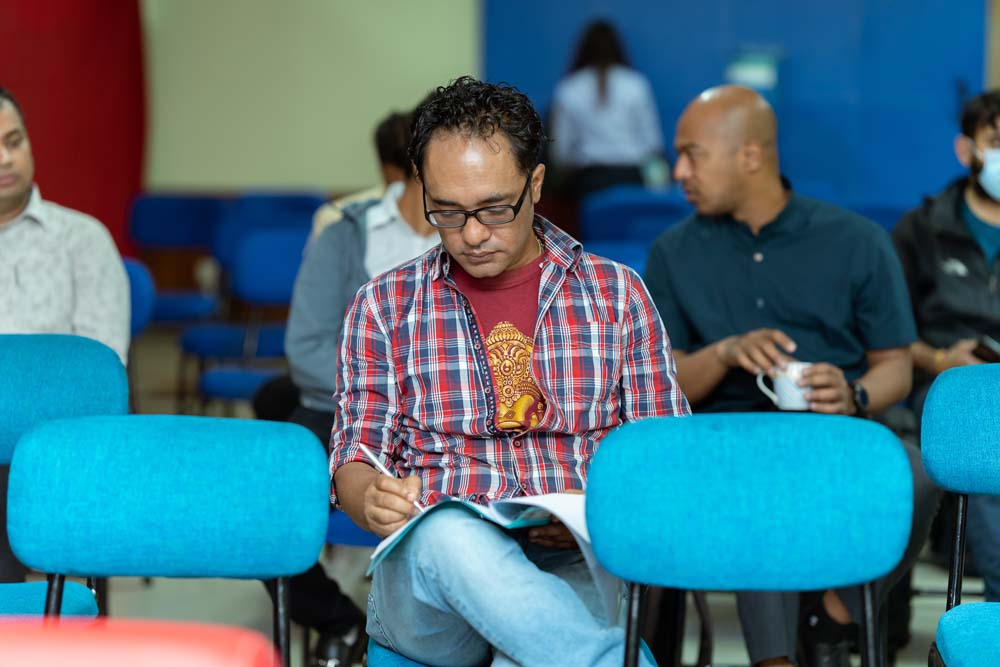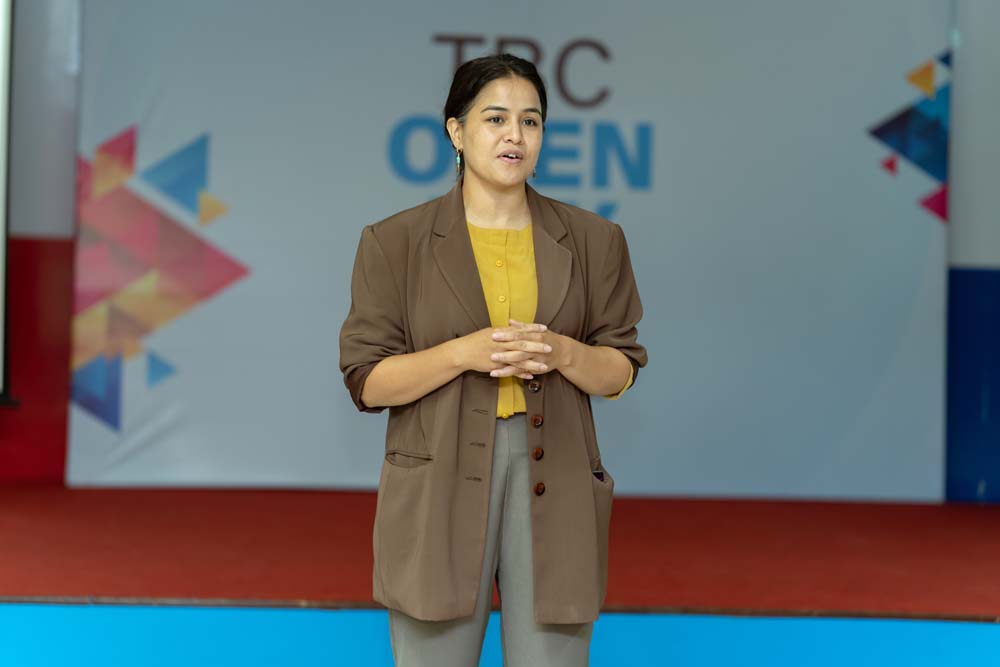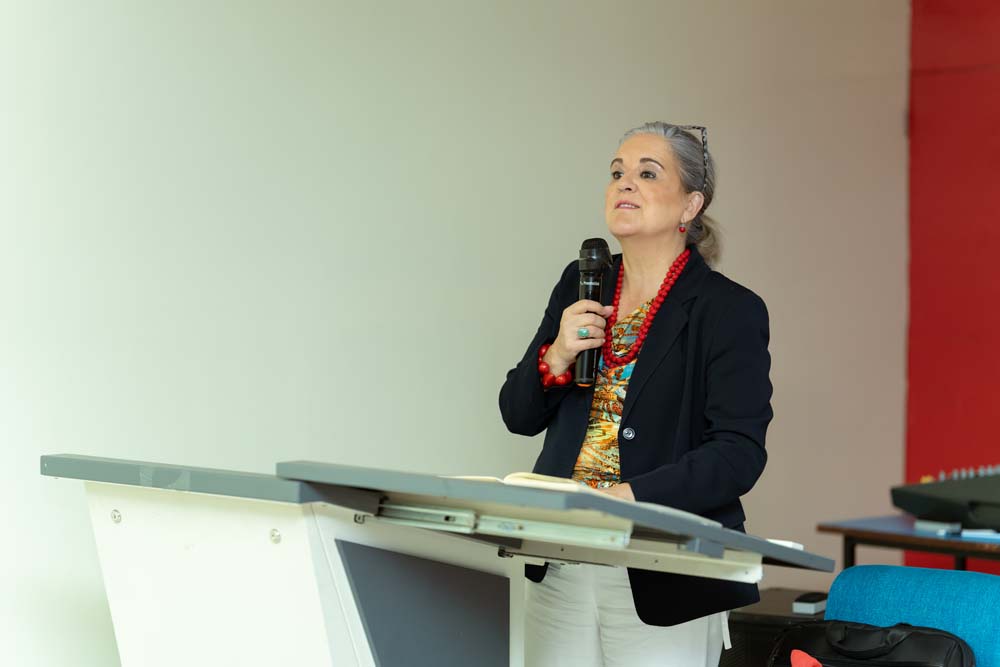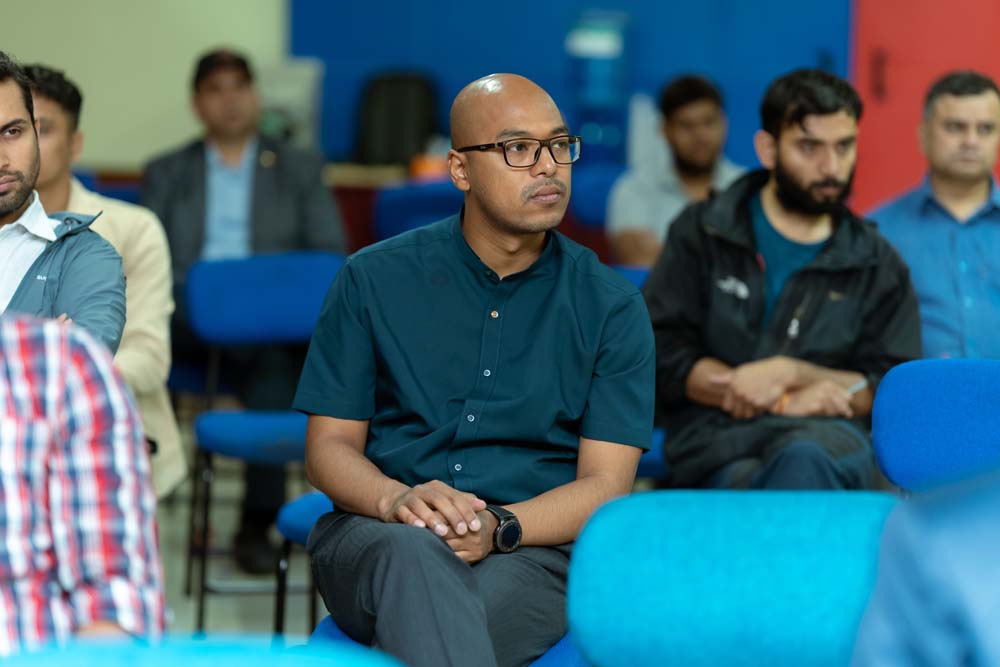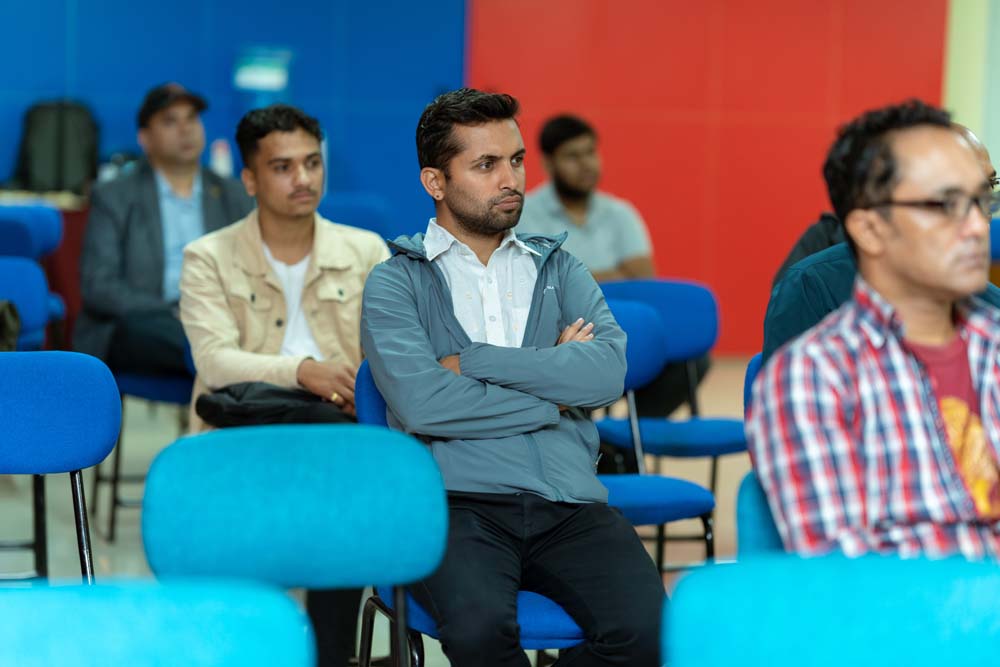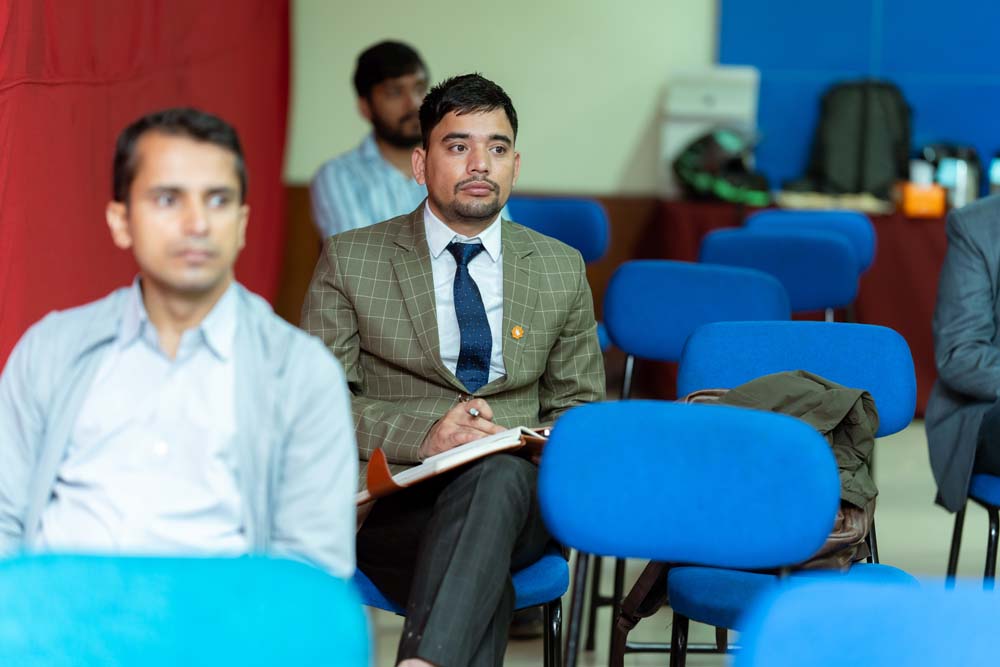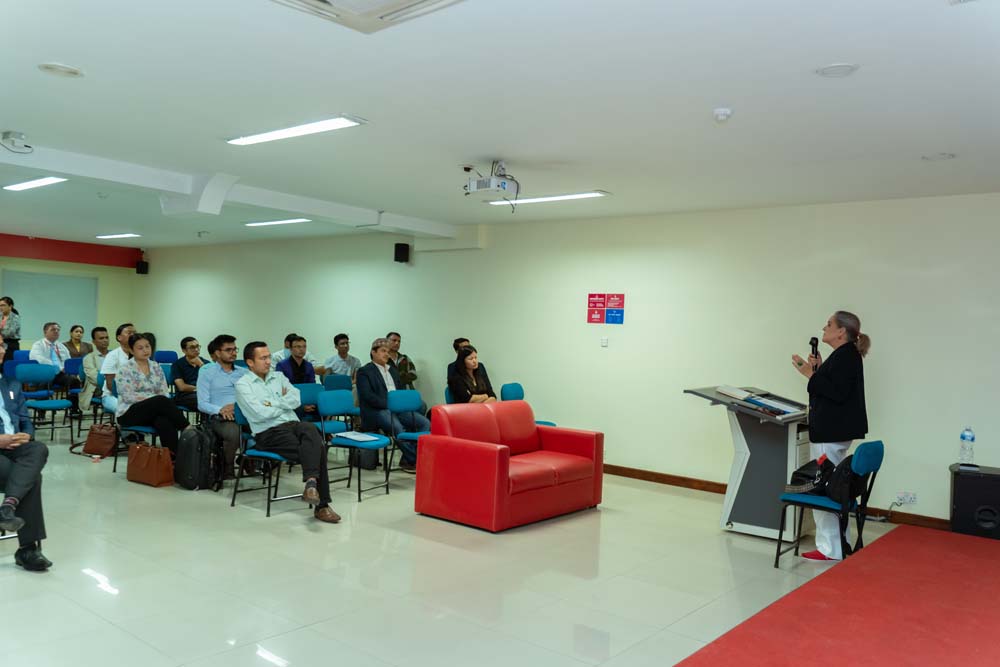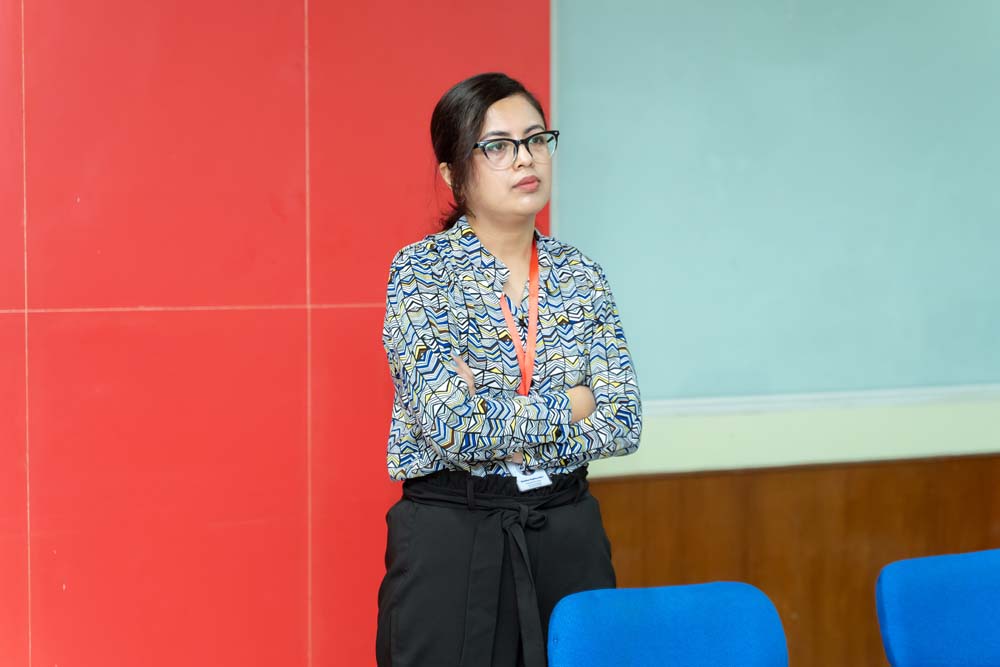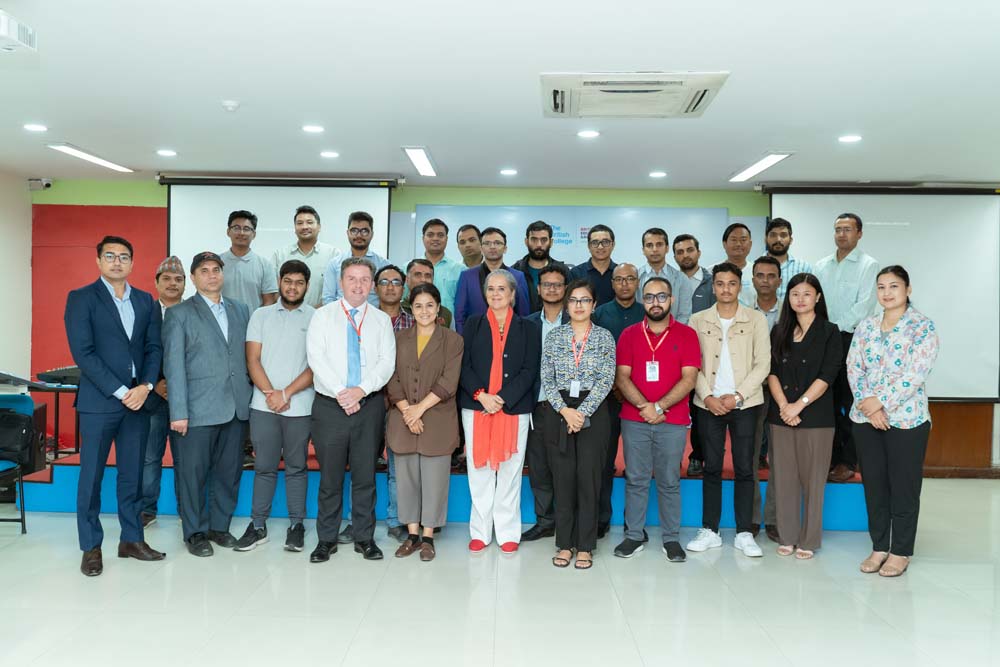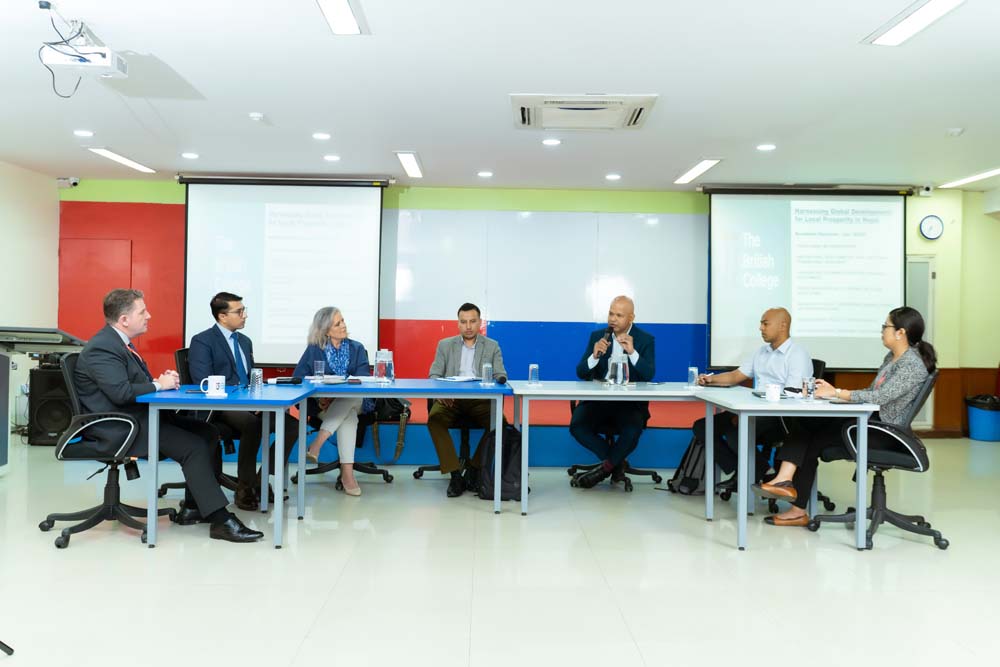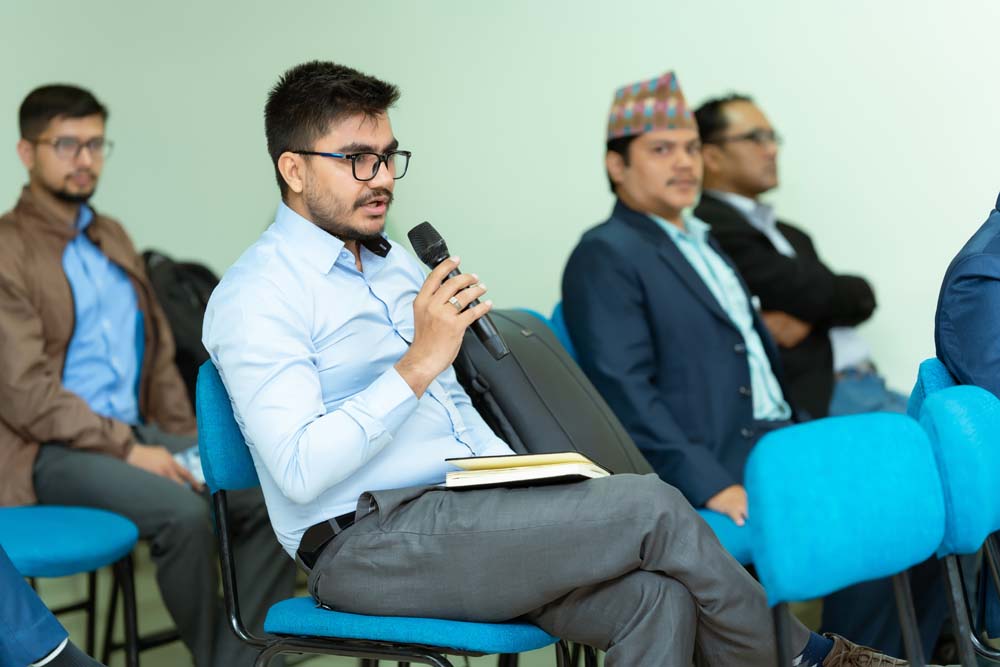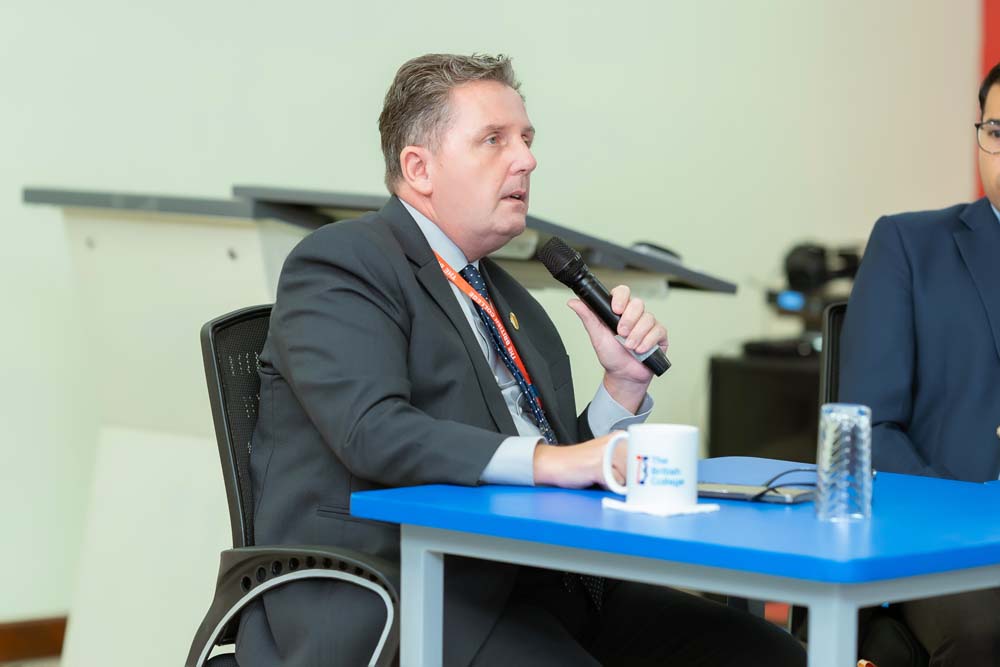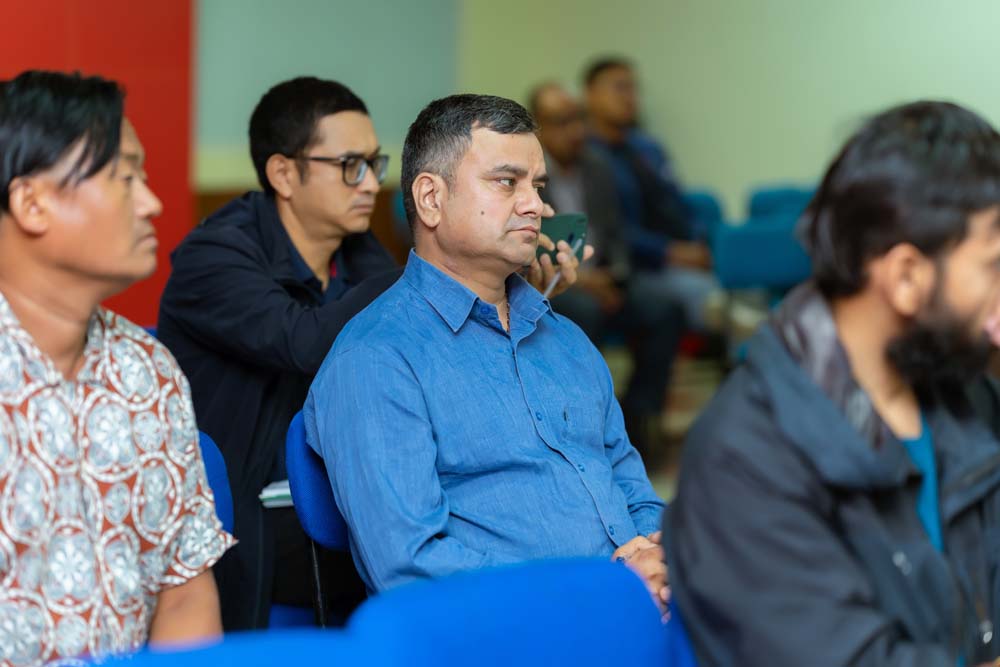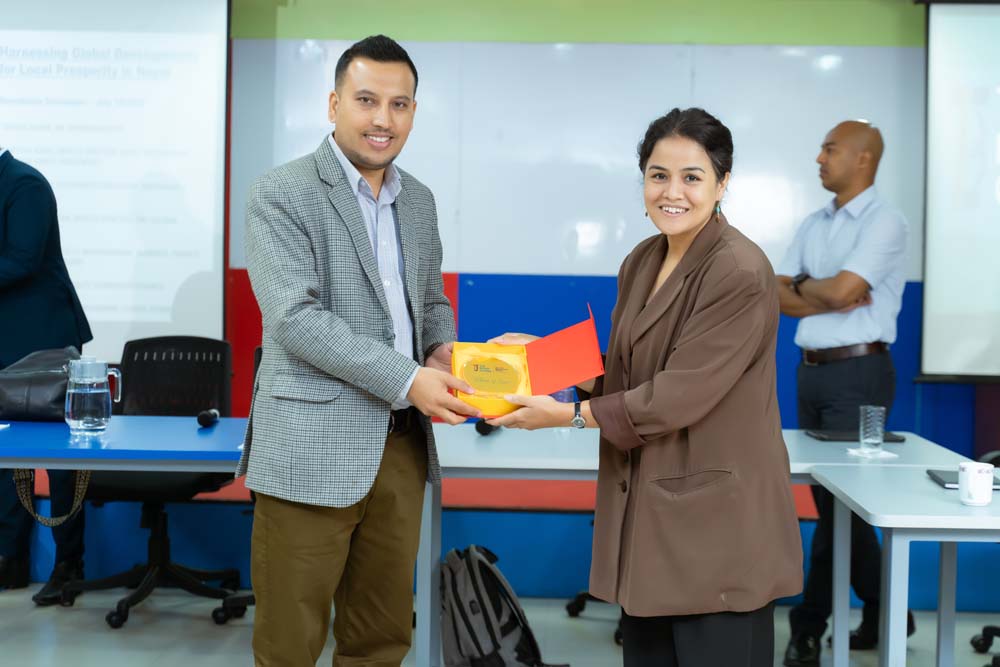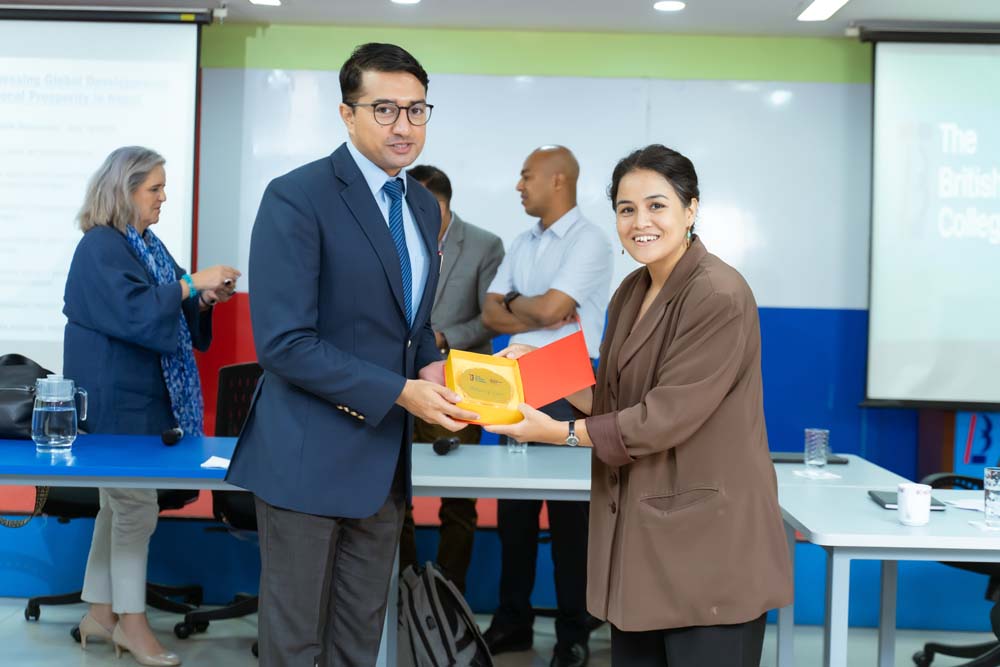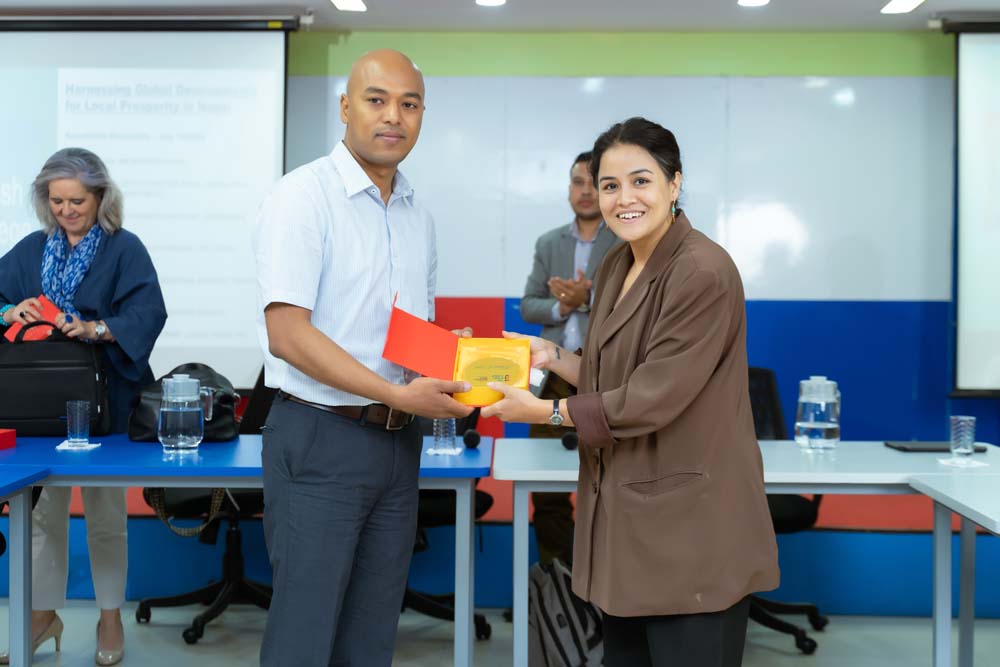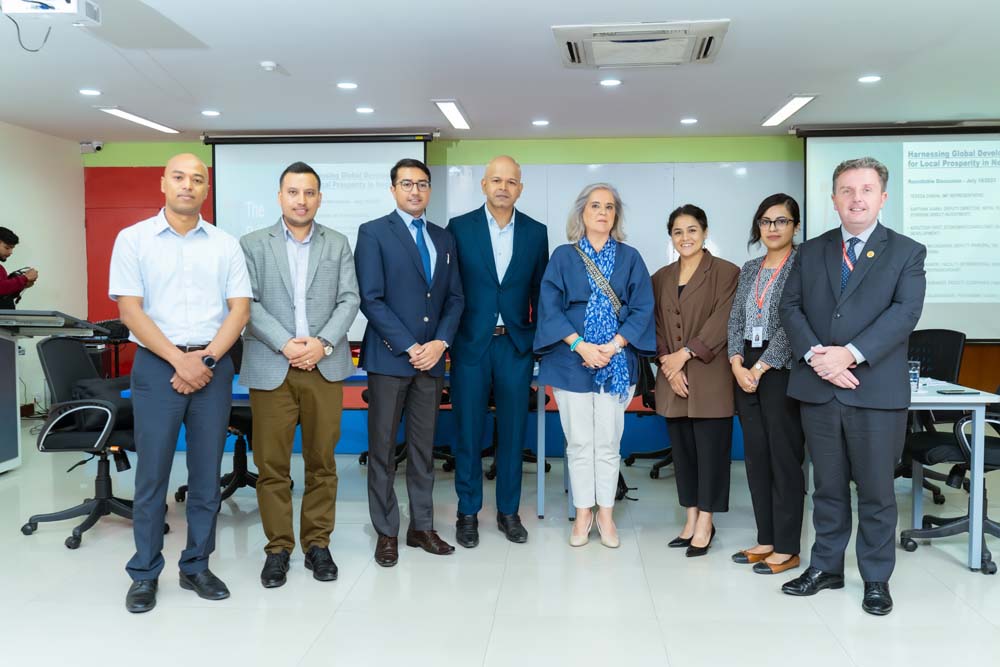“Harnessing Global Developments For Local Prosperity In Nepal”
A Reflection on an Insightful Roundtable Discussion
This year the TBC Distinguished Guest Lecture Series featured Ms Teresa Daban Sanchez, Resident Representative for Nepal for the International Monetary Fund. The four part guest series consisted of lectures on the role of the IMF, Nepal’s economic outlook, and the regional economic outlook - and ended with an insightful roundtable discussion on ““Harnessing Global Developments For Local Prosperity in Nepal”.
The objective of the roundtable event was to foster collaboration and generate actionable insights to support Nepal's sustainable development. It brought together a remarkable panel of experts, each one a leader in their respective fields, and represented diverse sectors such as financial institutions, policy makers, economists, business practitioners and academia.
The roundtable discussion commenced with a focus on leveraging global developments for economic growth and trade and our esteemed panellists shed light on the importance of trust in the business environment, emphasising its role in encouraging entrepreneurs to invest time, energy, and resources into establishing startups. It further addressed barriers such as bureaucracy, lack of specific policies, and safeguarding of investments, and highlighted infrastructure development and efficient utilisation of existing resources as key factors for driving economic growth.
They discussed the availability of concessional funding from the IMF at a macro level and recognised the potential of tapping into global technological advancements, such as AI and digitization, to reduce marginal costs, and level the playing field. The discussion further highlighted how technology such as this presents opportunities for sectors like agriculture and tourism which are major sectors in Nepal.
In line with sustainable development and environmental conservation, the panellists engaged in a thoughtful discussion about the challenges of balancing economic development with sustainability factors and meeting sustainable goals targets, and the need for awareness and alignment for all stakeholders at all levels.
During the session on financial stability we discussed how, as Nepal strives for economic development, it is crucial for the country to evaluate the potential impacts on financial stability - especially as it is vulnerable to climate change risks which necessitates financial resilience and safeguarding measures. Our esteemed panellists also provided valuable insights into the existing financial policies in Nepal and those that are currently in development - shedding light on the efforts being made to support Nepal's economic growth and drive local prosperity.
Overall, the roundtable event provided a platform for knowledge sharing, collaboration, and the exploration of strategies to harness global developments for local prosperity in Nepal and it was evident that a collective effort from all levels of government and stakeholders is necessary to drive sustainable growth and prosperity.
We would like to extend our gratitude to all the panellists, Teresa Daban Sanchez (IMF Resident Representative), Sarthak Karki (Deputy Director, Nepal Rastra Bank), Ashutosh Dixit (Economist/Consultant), Dr. Patrick McCrudden (Deputy Principal, TBC), Abiral Khatri (Investments and Economics Research Lead, NIFRA), and Raunak Karanjit (Senior Researcher, Sakshyam Research Institute), for their valuable contributions.
Their expertise and insights enriched the discussions and provided a solid foundation for future collaborations in support of Nepal's sustainable development. And as we conclude this event, we are optimistic that the ideas and strategies discussed will pave the way for tangible actions that will contribute to Nepal's path of prosperity and sustainable growth.

